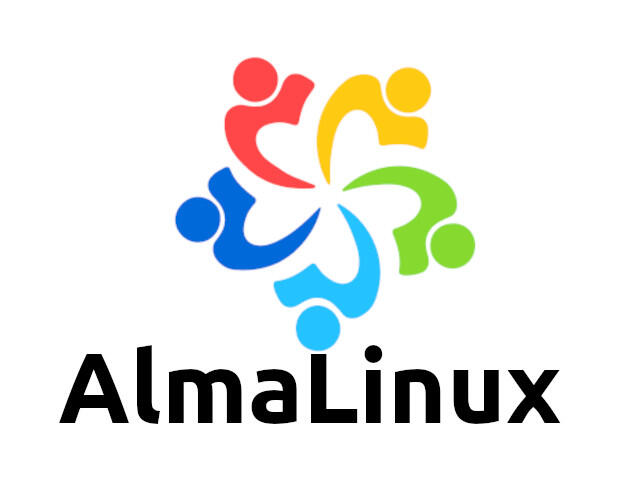7 Must-Have Features When Building a Bus Reservation System for Your Business

The digital age has transformed the way businesses operate, and the transportation sector is no exception. A bus reservation system can revolutionize the way customers book their travel while streamlining operations for companies. However, creating a system that meets user expectations and stays ahead of competitors requires careful planning and the inclusion of essential features. Let’s explore the must-have functionalities that will ensure your bus online reservation system becomes a success.
Understanding the Core Purpose of a Bus Reservation System
Before diving into the features, it’s essential to understand what a bus reservation system aims to accomplish. The primary purpose is to simplify the process of booking bus tickets for users while offering businesses a platform to manage schedules, optimize routes, and track operations effectively. It’s not just about ticketing; it’s about creating an efficient, user-friendly experience that adds value to all stakeholders.
1. User-Friendly Interface for Seamless Booking
First impressions matter. A clean, intuitive interface is the cornerstone of any successful bus online reservation system. Your customers need a platform that is easy to navigate, even for those who may not be tech-savvy.
Why is it important?
-
Ease of Use: Complicated designs can frustrate users, causing them to abandon the booking process.
-
Faster Transactions: A simple layout reduces booking time, making customers more likely to return.
Key Features to Include:
-
Clear navigation menus.
-
Mobile-first design to cater to on-the-go users.
-
A robust search function allows users to find routes based on departure times, destinations, or specific operators.
When working with an on demand app development company, emphasize creating a design that resonates with your audience’s needs and preferences.
2. Real-Time Seat Availability and Booking Updates
No one likes the disappointment of booking a ticket only to find out the seats are sold out. A reliable bus reservation system should provide real-time updates on seat availability.
Why does this matter?
-
Transparency: Customers trust systems that provide accurate, up-to-date information.
-
Better Planning: Knowing which seats are available at a glance helps users make quicker decisions.
How to Implement This?
-
Use dynamic seat mapping to show availability in real-time.
-
Highlight features like window or aisle seats to personalize the experience.
Businesses opting for a white label bus reservation system can incorporate such functionalities with minimal effort, giving them an edge in competitive markets.
3. Secure Payment Gateway Integration
In today’s digital-first environment, secure and diverse payment options are non-negotiable. Customers want a seamless payment process that ensures their data is safe.
The Role of Payment Security
-
Customer Trust: A secure system reduces the risk of data breaches, building confidence among users.
-
Convenience: Offering multiple payment methods, such as credit cards, digital wallets, and net banking, caters to a broader audience.
Best Practices for Integration
-
Partner with trusted payment gateway providers.
-
Include fraud detection measures like OTP verification.
-
Ensure compliance with global security standards like PCI DSS.
An efficient payment system also reflects your collaboration with a reliable on demand app development company, showcasing your commitment to user safety.
4. Advanced Reporting and Analytics Tools
For businesses, the back-end features of a bus reservation system are just as critical as the customer-facing ones. Advanced reporting and analytics tools help you understand customer behavior, optimize operations, and identify trends.
Key Benefits for Businesses
-
Revenue Insights: Track your top-performing routes and adjust pricing strategies accordingly.
-
Operational Efficiency: Monitor bus schedules, peak booking times, and user preferences.
-
Marketing Opportunities: Use data to create targeted promotions and campaigns.
Recommended Tools to Include
-
Dashboards for quick insights.
-
Exportable reports for financial analysis.
-
Real-time tracking of bookings and cancellations.
With the support of a white label bus reservation system, businesses can leverage these tools without building them from scratch, saving both time and resources.
5. GPS Tracking and Real-Time Bus Updates
One of the most sought-after features in modern travel apps is GPS tracking. Providing users with real-time updates on their bus's location improves the overall travel experience.
Why Customers Love This
-
Reduced Uncertainty: Passengers can plan their arrival times at pickup points without unnecessary waiting.
-
Enhanced Safety: Families can track buses to ensure safe arrivals and departures.
How to Make It Work
-
Integrate with existing GPS systems in buses.
-
Use push notifications to alert passengers about delays or changes in schedule.
These features also benefit business owners by enabling better fleet management and reducing idle time, making it a win-win.
6. Customization for Operators and Users
Every business has unique needs, and customers value personalization. Offering customization options for both operators and users can set your bus reservation system apart.
What Can Be Customized?
-
For Operators: Route management, pricing, and seat layouts.
-
For Users: Preferences for seat selection, language options, and saved payment methods.
Why This Matters
-
For Operators: Customization helps them cater to specific markets or demographic groups effectively.
-
For Users: Personalized experiences increase satisfaction and repeat bookings.
By partnering with an on demand app development company, you can design systems that allow both parties to tailor their experiences effortlessly.
7. Multilingual and Multi-Currency Support
In a globalized world, targeting a broader audience means catering to diverse languages and currencies. A bus online reservation system that offers these features ensures inclusivity and convenience.
Key Advantages
-
Wider Reach: Attract customers from different regions or countries.
-
Customer Satisfaction: Users prefer platforms that align with their linguistic and financial preferences.
Implementation Tips
-
Use AI-powered translation tools for accuracy.
-
Partner with payment gateways that support multiple currencies.
Offering these options is particularly beneficial for businesses using a white label bus reservation system, as it allows them to expand globally without significant modifications.
The Future of Bus Reservation Systems
As technology evolves, so do user expectations. Features like AI-driven chatbots, voice search, and blockchain-based payment systems are emerging trends that can elevate the user experience further. Staying ahead of these trends requires a forward-thinking approach and collaboration with an on demand app development company that understands your vision.
Conclusion
A bus reservation system is more than just a ticketing platform; it’s a comprehensive solution that enhances user experience and simplifies business operations. By including essential features like a user-friendly interface, real-time updates, secure payment gateways, and customization options, your system can stand out in a competitive market.
Businesses must also focus on analytics, GPS tracking, and multilingual support to cater to a diverse audience effectively. Whether you’re building a system from scratch or leveraging a white label bus reservation system, these functionalities are crucial for long-term success.
When you invest in creating a well-rounded bus online reservation system, you’re not just meeting customer expectations—you’re exceeding them.
What's Your Reaction?




















.jpg)